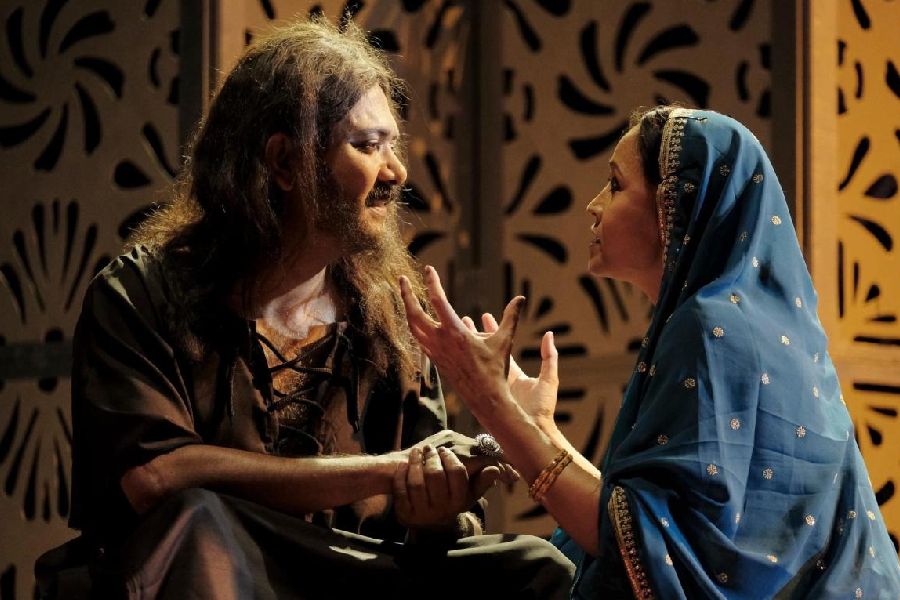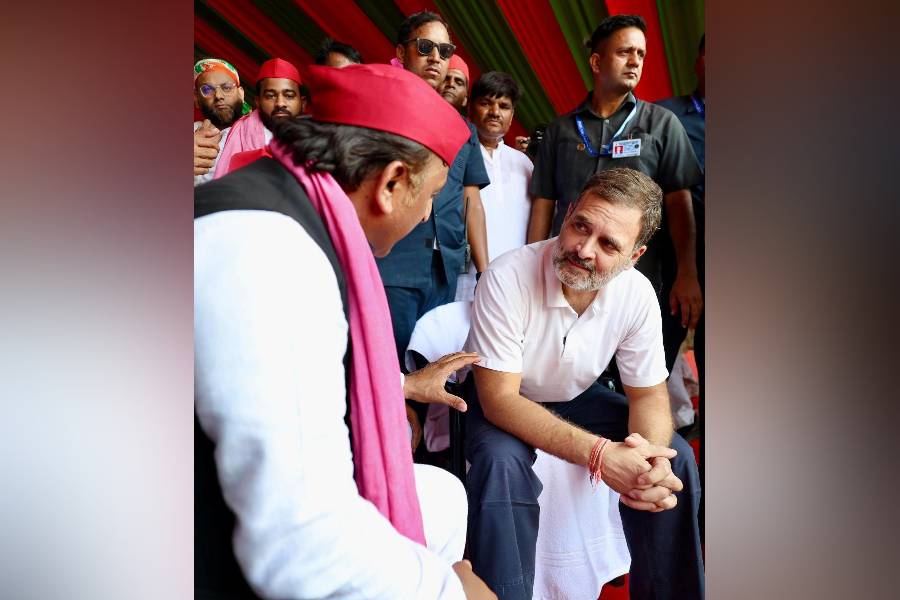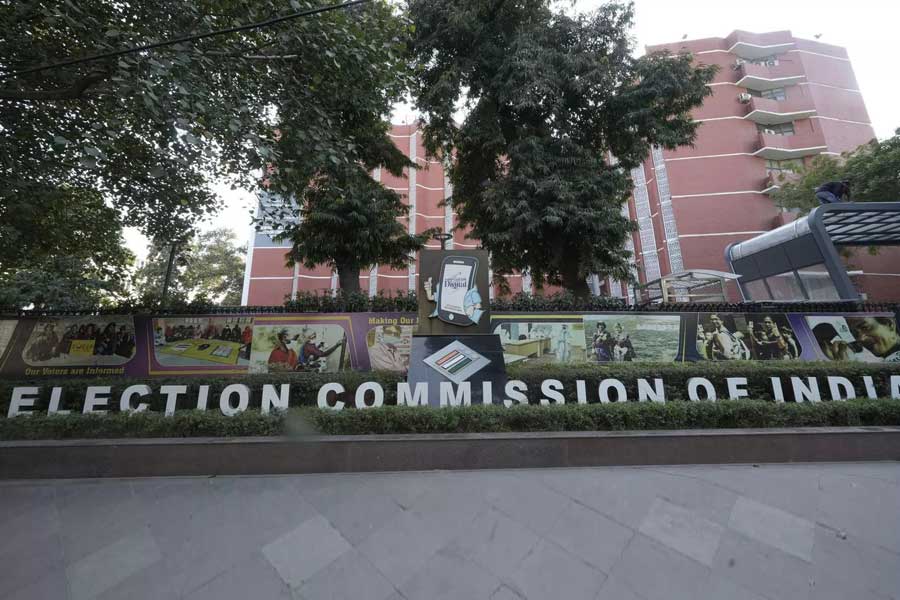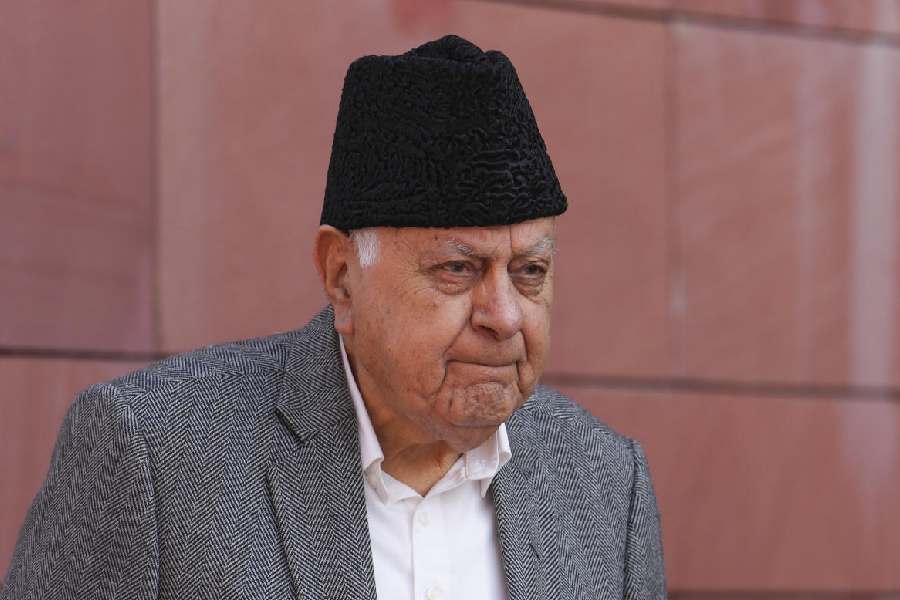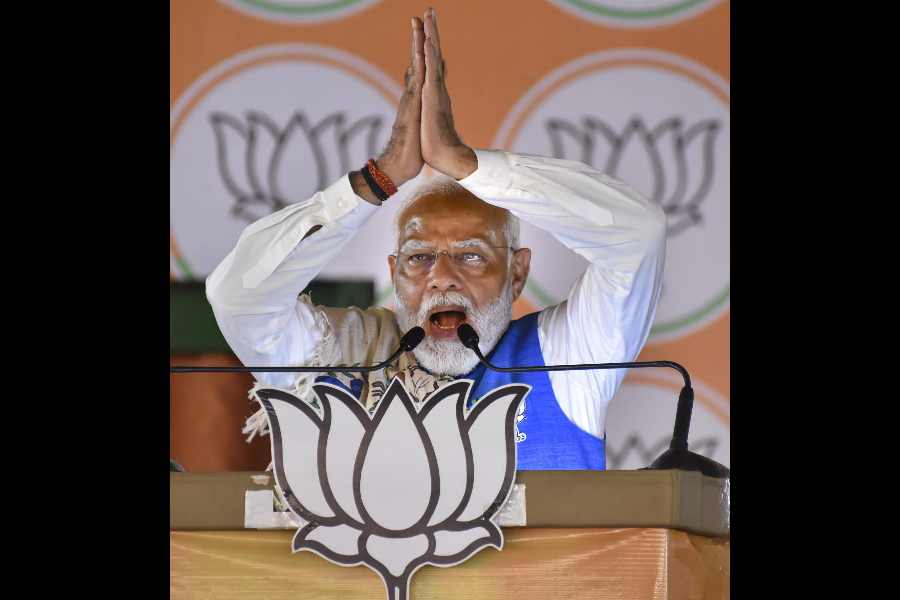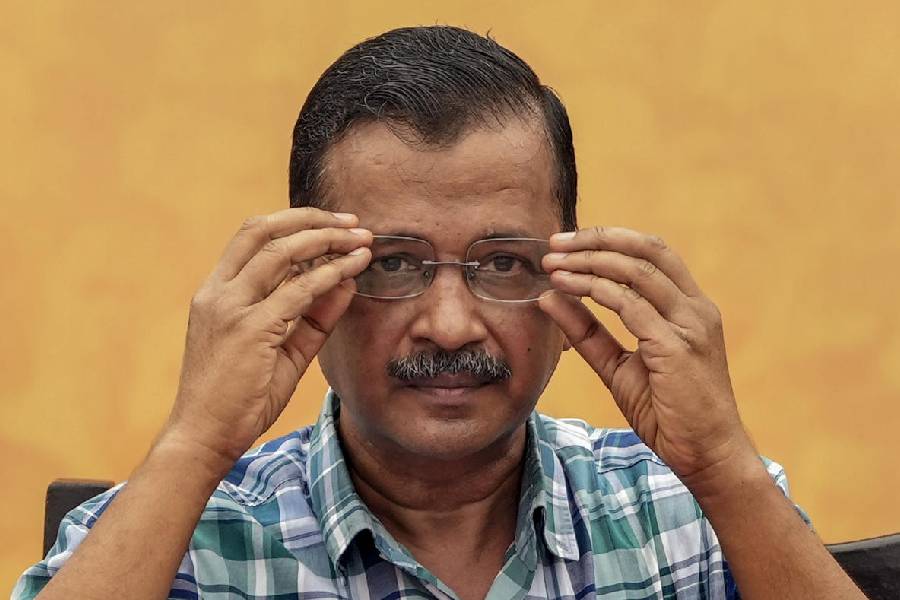Would ‘brave’ be an apt adjective to describe a theatrical production? In today’s fractured society, a performance celebrating the monument dedicated to love as a symbol of the need for unity and brotherhood is certainly brave. Though preachy in parts, Gayeshpur Sanglap’s Tazmahal is a superb call to action, its message of religious syncretism hitting home effectively.
The noble message is delivered through two parallel events — the war of succession to the Mughal throne following Shah Jahan’s sudden illness and its story, with greater focus upon Dara Shikoh, being narrated by one aam aadmi to another in 21st-century India. Sudipta Datta and Samaresh Saha as Dara and Aurangzeb, respectively, the two warring brothers who did not see eye to eye on the treatment of non-Muslims, are excellent, conveying the pain and the pathos of leading lives of violence and political intrigue adequately. Arpita Datta’s performance as Jahanara, Dara’s favourite sister and the head of the Mughal household, left much to be desired. The blame for that should go to the playwright, Hara Bhattacharya; her role was filled with unnecessary emotional dialogues designed only to tug at the audience’s heartstrings. The subplot of Jahanara’s torn loyalties between the condemned and the victorious sibling needlessly shifts the attention from Dara’s trial in which the prince’s sparring with Hakim Daud (Subhashis Das) and Dr Barnier (Kunal Chakraborty) — these two actors also play the two ordinary citizens of the present quite well — creates some brilliantly thought-provoking theatre.
Music was one of Tazmahal’s strengths too. Surojit Nandy, who also made brief appearances as Mullah Shah — the Sufi saint who became Dara’s spiritual mentor — has a melodious voice which complemented the tenor of the play. Most of the songs and their accompanying dance performances strengthened the aesthetic hues of the period depicted.
Tazmahal is a tad long and pointlessly didactic in bits. But it makes one think: how can Hindus be in ‘khatra’ today? The time for silence is over, says Gayeshpur Sanglap. It is time to be heard.

